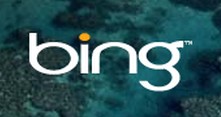The new name for Microsoft’s search engine is meant to capture the sound effect of a lightbulb moment. But coming up with “Bing” was hardly spontaneous for the software giant. It took six months and dozens of experts to settle on the name.
Brand naming is serious business in an age when goods must have global appeal and when an unfortunate choice can turn a promising product into a punch line.
Microsoft was determined to get it right when, in early 2007, it decided to rename its “Live Search” service. Interbrand, the firm that won the job of developing a list, assigned eight people to brainstorm names around such themes as “speed” and “relevance.”
Over roughly six weeks they came up with more than 2,000 choices, winnowing as they went along, says Paola Norambuena, who ran the project.
First to go were names that weren’t catchy or were hard to type. As two trademark lawyers and 20 linguists pored over the 600 remaining choices, the team also eliminated any used by other companies–or profane in any language.
That left 50 to 60 to show to Microsoft, which picked eight, submitting those to focus groups and more trademark screening. On that short list: Kumo (Japanese for “spider,” and also the project’s code name) and Hook.
Bing won out, says Microsoft’s Danielle Tiedt, who manages the search engine’s marketing, partly because it was close to the “aha!” sound in many languages. “It’s short, appealing, memorable, active,” says Jeremy Faro, a senior director at branding agency Landor Associates. Still, despite all the hard work, bloggers are taking potshots. One popular quip: Bing is an acronym for “But It’s Not Google.”
Photo by Microsoft.
